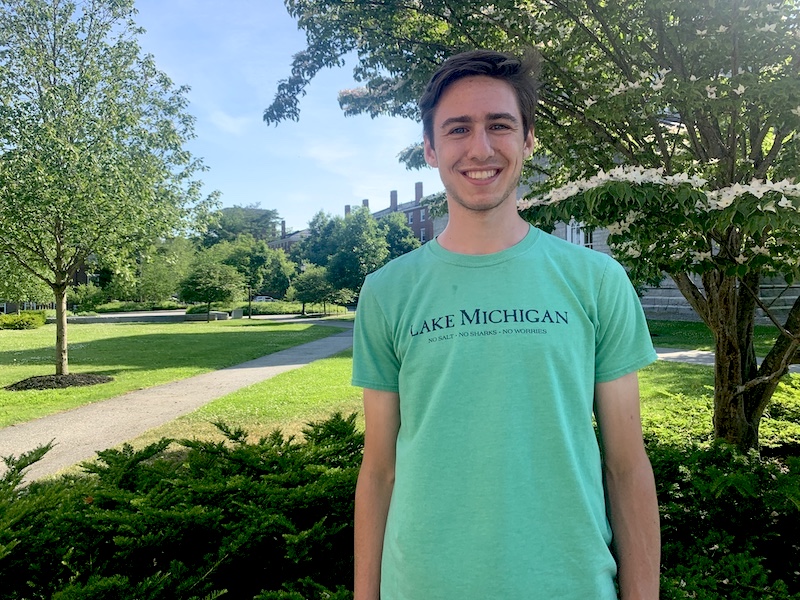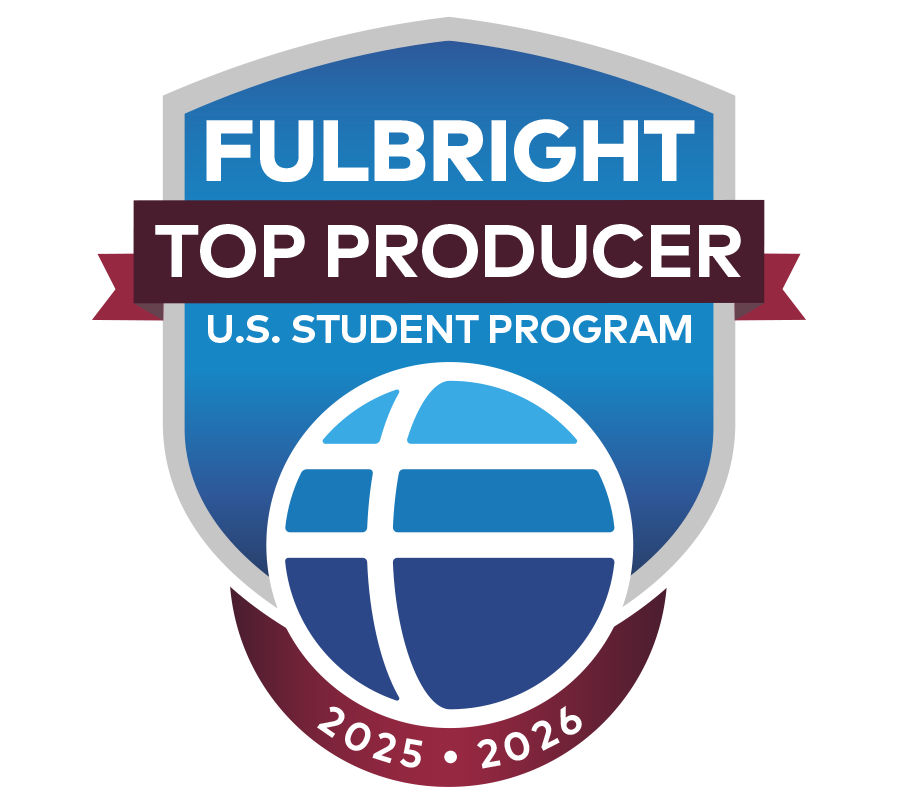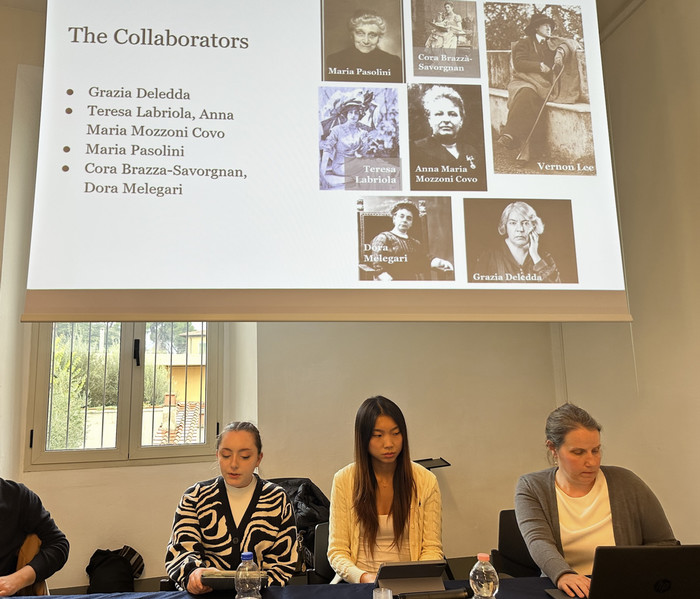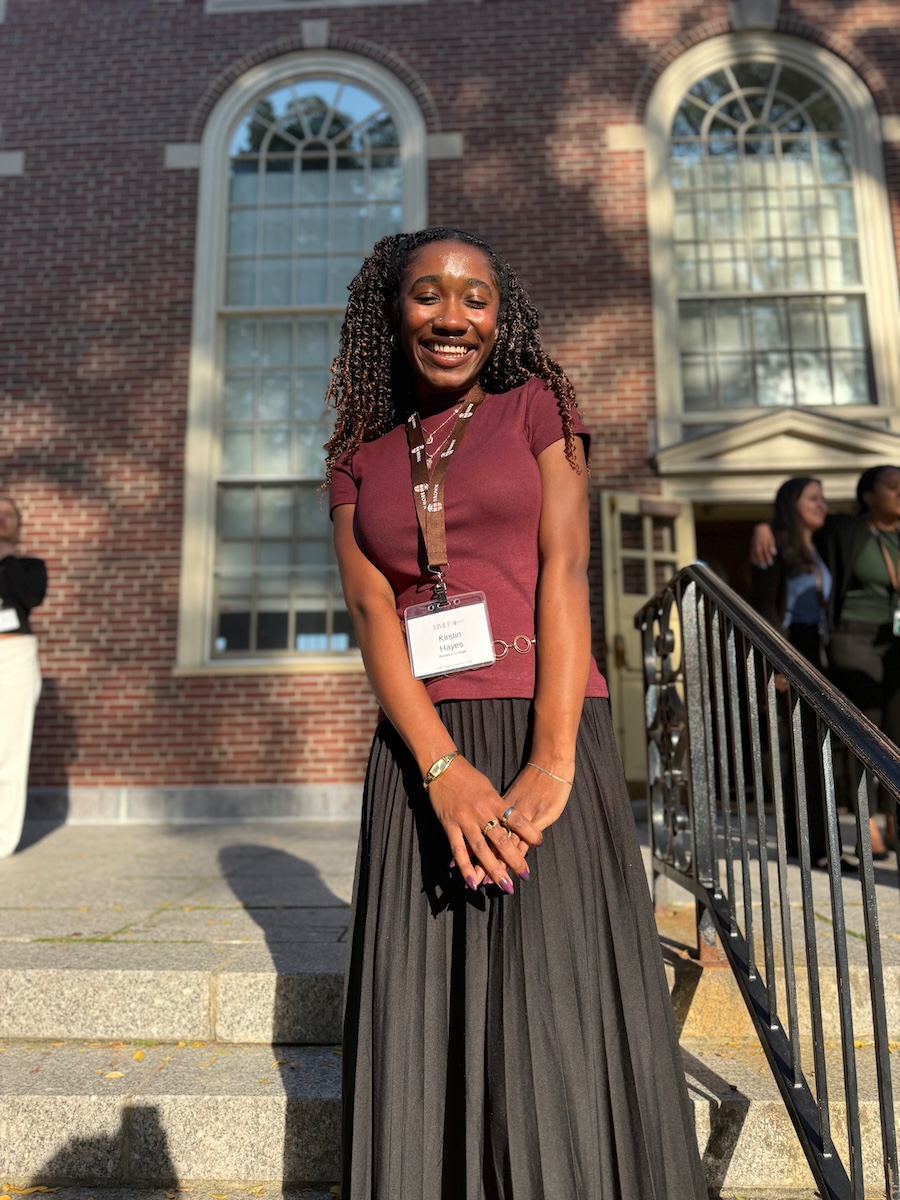Max Freeman: Memory Metaphors and the Power of Digital Photography
By Rebecca Goldfine
To do this, he's analyzing how our use of metaphors relating to memory have changed over the past 150 years or so.
"I'm interested in how conceptual metaphors have developed and changed," he said, "and the one I'm focusing on is the idea of how the photo has gained prominence in our lives—particularly in the digital age, in apps on our phone—and how that has impacted the way we conceive of our personal memories and the way we remember things."
In Freeman's argument, the photo has become a stand-in, or metaphor, for memory. This follows the line of reasoning that Facebook is a metaphor for friendship (in "an alarming way," Freeman adds), and Snapchat and Zoom are metaphors for conversation.
Before there was the digital photograph that we could share, we relied on narrating our memories to one another, Freeman said. Now it's easier to simply send a picture. "A lot of our relationships with memories aren't just remembering them but sharing them, and the way we share something of our past has, from my own observations, changed radically with the photo. I suspect that is also reflected in our language around memory and photos."
Freeman is an English major, so it makes sense he's looking at language to reveal the impact of technology on the way we live, communicate, and think. Technology also provides one of the most efficient ways to study the evolution of language. Freeman is using textual analysis programs like Word2vec to comb through huge databases of words, including The New York Times archives dating back to the 1800s. He's being advised by Eric Chown, chair of the digital and computational studies department (DCS), and Fernando Nascimento, assistant professor of DCS.
Freeman spends his summer mornings in Brunswick reading critical theory (on his lawn, under the shade of a tree) and devotes his afternoons to computer work, where he searches for patterns in the language we use to describe memories and photography.
Though his research is still in the early stages, he's noticed that in the past two to three decades words relating to newness are much more likely to be paired with the word memory. One common example is when Facebook alerts us that we "have a new memory" to remind us of a post we made one, three, or five years ago.
Though photos might replace our cognitive memories—we can recall the photograph but can't visualize the actual event that precipitated it—it's not necessarily a bad development, Freeman added. Computers are built with a lot more "memory" than a human brain, so they can store more of our personal moments than we would ever be able to remember ourselves.
"That's one of the condundrums I'm looking at," he said. "There's more memory, but is it more fragile?"

Philosophy of Mind, with Professor of Philosophy Scott Sehon: "For me it offered an overview of what it means to believe in the properties of the mind coming from the physical world and what assumptions we need to have for those to be true, versus there to be no such thing as reason and consciousness, or to believe that those things are independent from the physical reality. It's a class that really screws with your head!"
Cognition in Analog and Digital Environments, with Sarah and James Bowdoin Professor of Digital and Computational Studies Eric Chown: "It offered me a new way of looking at the world that was incredibly powerful, because we combined a study of the elements of cognition with how they formed in the evolutionary context. Now we are in a different world where [these elements] are trying to make do."
Socrates and the Problem of History, with Associate Professor of Classics Robert Sobak: "It was fascinating to learn about ancient Athenian democracy and the birth of philosophy, which is immensely important to understanding the world we're in today. But it's also a fascinating history by itself."
Reading Uncle Tom's Cabin, with Peter M. Small Associate Professor of Africana Studies and English Tess Chakkalakal: "We had some of the best classroom discussions I've ever had with twenty-five people in a circle. The content itself was great, because we studied the text of Uncle Tom's Cabin, but we also looked at African American literature that came after it from the perspective of how it was responding to and adding to and critiquing the issues and methods that Harriet Beecher Stowe brought up and used in her novel."



